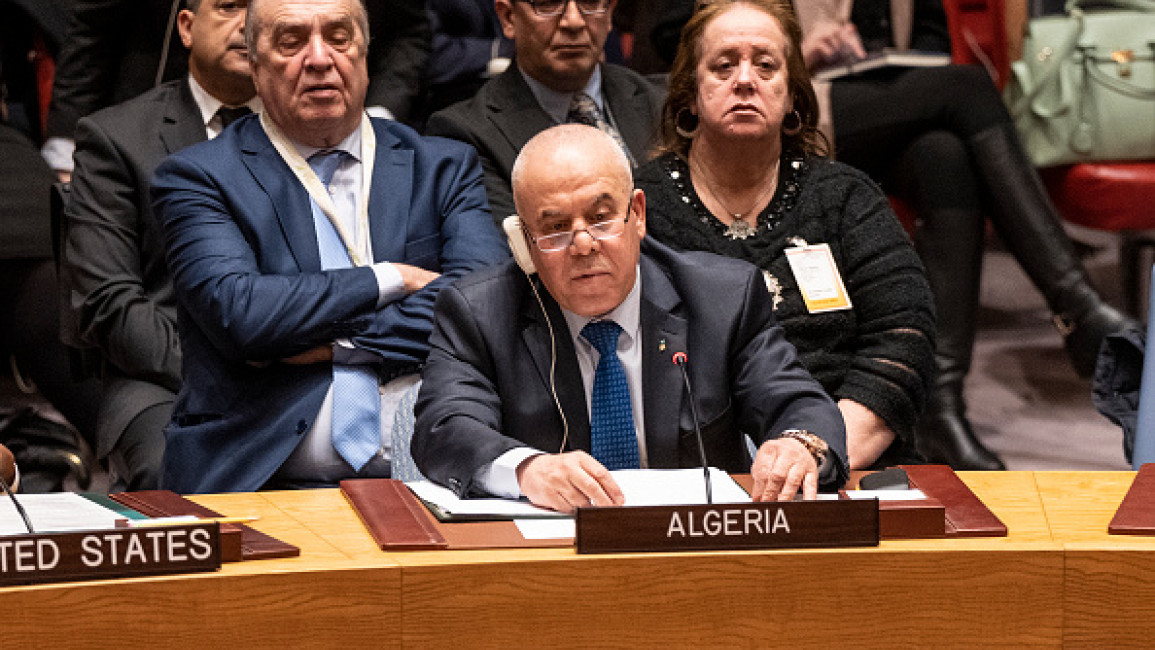Key differences in Algeria, US's UN resolution text on Gaza ceasefire
The US has used its UNSC veto for the third time to block a resolution at the United Nations Security Council (UNSC) calling for a ceasefire in Gaza.
Algeria’s draft demanded an immediate humanitarian ceasefire in the Israel-Hamas war. The US delegation to the UN had been quick to warn it would veto the text during the vote on Tuesday. Despite the backing of 13 out of 15 UNSC members, the resolution failed with the UK abstaining and US voting against.
Ahead of this vote, the US penned an alternative resolution seen on Monday by various news agencies. It was not yet clear when or if the US’ competing draft will be put to a vote in the UNSC, as the US will first work on gathering support from other members.
There are several notable differences between the two texts.
The document prepared by Algeria demanded "an immediate humanitarian ceasefire that must be respected by all parties".
Meanwhile, the resolution spearheaded by the US only calls for a "temporary ceasefire in Gaza as soon as practicable, based on the formula of all hostages being released", according to the text seen by Reuters and AFP on Monday.
The US had previously avoided the term “ceasefire”, vetoing two drafts in October and December which used the term.
The other key advance in the US draft is that the UNSC would oppose a major Israeli ground offensive in Rafah in southern Gaza, albeit in relatively weak language.
Hence, the US draft text "determines that under current circumstances a major ground offensive into Rafah would result in further harm to civilians and their further displacement including potentially into neighbouring countries".
It also "underscores that such a major ground offensive should not proceed under current circumstances".
While it demanded the release of all Hamas captives, the Algerian text did not explicitly condemn Hamas's October 7 attacks.
But there are also commonalities between the two texts, which both take a stance against the forced displacement of Palestinians from Gaza.
The US draft resolution thus formally rejects "any actions by any party that reduce the territory of Gaza, on a temporary or permanent basis, including through the establishment officially or unofficially of so-called buffer zones, as well as the widespread, systematic demolition of civilian infrastructure."
It also condemns calls by some Israeli government ministers for Jewish settlers to move to Gaza and rejects any attempt at demographic or territorial change in Gaza that would violate international law.
A resolution needs at least nine votes in favour (out of fifteen members), and no vetoes by the United States, France, Britain, Russia or China to be adopted.
A diplomatic source told AFP that the US text is also unlikely to pass in its current state. There’s a high risk that any text introduced to the 15-member body by the US might face a veto from Russia.



